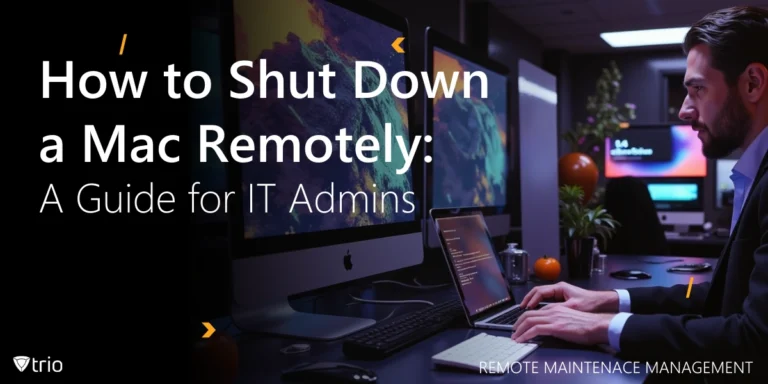With the rise in cyber threats and data breaches, governments are enacting legislation to safeguard individuals’ privacy rights and hold businesses accountable for the security of their data. One such legislation is the NY SHIELD Act, short for Stop Hacks and Improve Electronic Data Security Act, implemented in New York. Understanding the implications and requirements of this act is paramount for businesses operating within the state or handling the private information of its residents. In this comprehensive guide, we’ll delve into everything you need to know about the NY SHIELD Act and how it impacts organizations.
What Is the NY Shield Act?
The NY SHIELD Act, or Stop Hacks and Improve Electronic Data Security Act, is a data breach notification law passed in New York. NY SHIELD act compliance requires businesses to maintain reasonable safeguards to protect the security, confidentiality, and integrity of private information, and it expands the definition of “private information” to include biometric data and email addresses with passwords or security questions and answers.
Additionally, the NY SHIELD Act mandates that businesses notify affected individuals and the state’s attorney general in the event of a company data breach. This act aims to enhance data security and ensure that individuals are promptly informed if their personal information is compromised. Several other states and regions have enacted data breach notification laws similar to the NY SHIELD Act. Some examples of other types of compliance include:
-
California Consumer Privacy Act (CCPA)
The CCPA grants California residents’ certain rights regarding their personal information held by businesses, including the right to know what information is being collected and shared and the right to request deletion of their data.
-
General Data Protection Regulation (GDPR)
Although not specific to a single state, the GDPR is a European Union regulation that governs data protection and privacy for individuals within the EU and the European Economic Area (EEA). It imposes strict requirements on organizations regarding data processing, consent, and breach notification.
Why Is the NY Shield Act Important?
The NY SHIELD Act is important for organizations for several reasons:
- Legal Compliance: Compliance with the NY SHIELD Act is mandatory for businesses operating in New York. Failure to comply with the NY SHIELD act’s notification requirements can result in legal consequences. According to the Office of the New York State Attorney General, “the court may impose a civil penalty of up to $20 per instance of failed notification, not to exceed $250,000. For failure to maintain reasonable safeguards, the court may impose a civil penalty of up to $5,000 per violation.”
- Data Protection: The Act requires organizations to implement reasonable safeguards to protect private information. This helps mitigate the risk of data breaches, which can lead to financial losses, damage to reputation, and legal liabilities.
- Customer Trust: Implementing robust data security measures and promptly notifying individuals in the event of a breach can enhance trust and confidence among customers, clients, and stakeholders. Demonstrating a commitment to protecting personal information can improve brand reputation and loyalty.
- Risk Management: By proactively addressing data security risks and implementing measures to prevent breaches, organizations can better manage and mitigate potential risks associated with cyberattacks and data breaches.
- Competitive Advantage: Organizations that prioritize data security and compliance with regulations like the NY SHIELD Act may gain a competitive advantage. They can differentiate themselves in the marketplace by showcasing their commitment to protecting customer privacy and data.
- Avoiding Reputation Damage: Data breaches can significantly damage an organization’s reputation and erode trust among customers and stakeholders. Compliance with data protection laws like the NY SHIELD Act can help organizations minimize the risk of reputational harm associated with data breaches.

Who Has to Comply With the NY Shield Act?
The NY SHIELD act compliance checklist applies to any person or business that owns or licenses computerized data that includes private information of New York residents. This includes not only businesses physically located in New York but also those located outside of the state if they collect or possess the private information of New York residents.
Private information, as defined by the Act, includes a combination of an individual’s name with one or more of the following:
- Social Security number
- Driver’s license number or non-driver identification card number
- Account number, credit or debit card number, in combination with any required security code, access code, or password to permit access to an individual’s financial account
- Biometric information (e.g., fingerprint, voice print, retina or iris image)
- Username or email address in combination with a password or security question and answer that would permit access to an online account.
Therefore, businesses and entities that collect, store, or process the personal information of New York residents and meet the criteria outlined in the Act must comply with its requirements regarding data security, breach notification, and safeguarding private information.
How Trio Can Help
Mobile Device Management (MDM) solutions can help organizations comply with IT compliance by providing tools and features to enhance data security and protect private information. Here’s how our MDM solution, Trio, can contribute to compliance:
- Device Encryption: Trio includes features to enforce encryption on mobile devices, ensuring that data stored on the devices remains protected even if the device is lost or stolen. This helps organizations comply with the requirement to maintain reasonable safeguards to protect private information.
- Remote Wipe: Trio enables administrators to remotely wipe sensitive data from lost or stolen devices. This feature helps prevent unauthorized access to private information and mitigates the risk of data breaches.
- Policy Enforcement: Trio allows organizations to enforce security policies on mobile devices, such as requiring strong passwords or biometric authentication, setting screen lock timeouts, and restricting access to certain apps or data. By enforcing these policies, organizations can enhance data security and comply with the Act’s requirement to implement reasonable safeguards.
- Mobile Application Management: Trio includes features for managing mobile apps, such as whitelisting or blacklisting apps, deploying and updating apps remotely, and monitoring app usage. These features help organizations control the use of mobile apps containing private information and reduce the risk of unauthorized access or data leakage.
- Remote Monitoring and Auditing: Trio provides administrators with visibility into the devices connected to their network, allowing them to monitor device activity, track compliance with security policies, and generate audit reports. This helps organizations demonstrate compliance with the Act’s requirements and respond promptly to any security incidents or breaches.
Conclusion
In conclusion, the NY SHIELD Act represents a significant step forward in data protection and privacy regulation, not only in New York but also setting a precedent for other states and regions. Compliance with this act is not only a legal obligation but also a fundamental aspect of maintaining trust with customers and stakeholders.
By prioritizing data security, implementing robust safeguards, and leveraging tools like Trio, organizations can navigate the complexities of the NY SHIELD Act and safeguard private information effectively. As data breaches continue to pose significant risks, proactive measures to comply with regulatory standards are essential for ensuring the integrity and security of personal information in today’s interconnected world. Try out Trio’s free demo to get a taste of what the ultimate MDM solution feels like as it automates the various processes throughout your organization; onboarding and offboarding, device provisioning, and more.
Get Ahead of the Curve
Every organization today needs a solution to automate time-consuming tasks and strengthen security.
Without the right tools, manual processes drain resources and leave gaps in protection. Trio MDM is designed to solve this problem, automating key tasks, boosting security, and ensuring compliance with ease.
Don't let inefficiencies hold you back. Learn how Trio MDM can revolutionize your IT operations or request a free trial today!




